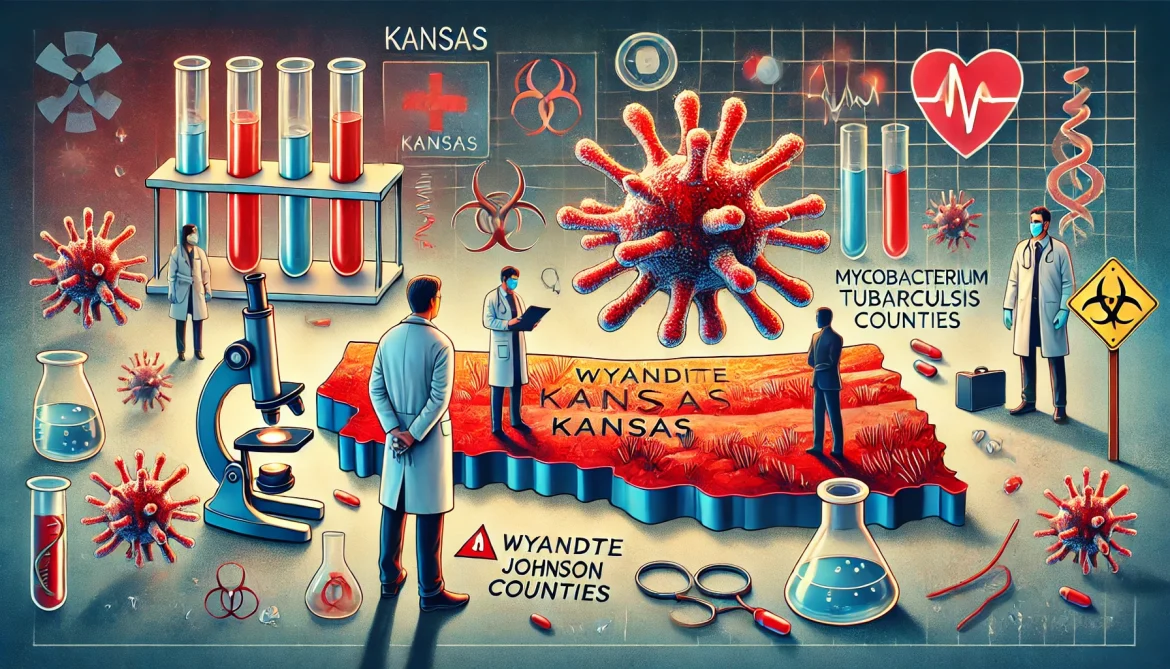Kansas is currently experiencing the most significant tuberculosis (TB) outbreak ever recorded in the United States. Since 2024, health officials have identified 67 active TB cases and 79 latent infections, primarily in Wyandotte and Johnson counties. This surge marks the largest documented TB outbreak since the Centers for Disease Control and Prevention (CDC) began monitoring the disease in the 1950s.
Current Situation:
- Active Cases: As of January 24, 2025, there are 60 active TB cases in Wyandotte County and seven in Johnson County.
- Latent Infections: Health authorities have also reported 77 latent TB cases in Wyandotte County and two in Johnson County.
Public Health Response:
The Kansas Department of Health and Environment (KDHE), in collaboration with local health agencies and the CDC, is actively managing the outbreak. Efforts include identifying and treating both active and latent TB cases to prevent further transmission. Despite the outbreak’s magnitude, officials emphasize that the risk to the general public remains very low.
Understanding Tuberculosis:
TB is an airborne disease caused by the bacterium Mycobacterium tuberculosis, primarily affecting the lungs. It spreads when an infected person coughs, speaks, or sings, releasing bacteria into the air. Symptoms of active TB include a persistent cough lasting more than three weeks, chest pain, and coughing up blood. While TB is treatable with antibiotics, the treatment regimen is extensive, often requiring up to nine months of medication adherence.
Latent vs. Active TB:
- Latent TB Infection: Individuals carry the bacteria but do not exhibit symptoms and are not contagious. Without treatment, latent TB can progress to active disease.
- Active TB Disease: Individuals show symptoms and can transmit the bacteria to others.
Historical Context:
Between 2019 and 2021, Kansas reported an average of 40 TB cases annually. In 2022, this number increased to 52 cases, partly due to an outbreak of multidrug-resistant TB in Kansas City. The current surge, with 67 active cases, surpasses previous records, making it the largest TB outbreak in U.S. history.
Public Advisory:
Health officials advise individuals, especially those in affected counties, to be vigilant for TB symptoms and seek medical attention if they experience:
- A persistent cough lasting more than three weeks
- Chest pain
- Coughing up blood
Early detection and adherence to treatment are crucial to controlling the spread of TB. The KDHE continues to monitor the situation closely and is committed to providing updates as new information becomes available.



